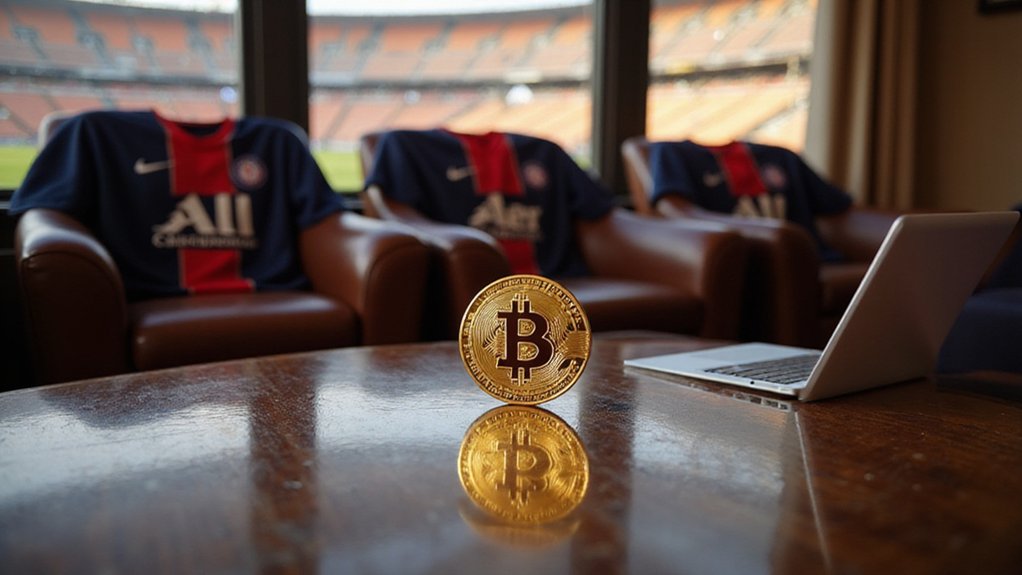In a move that would have seemed fantastical just a decade ago—when Bitcoin was still dismissed by institutional finance as digital Monopoly money—Paris Saint-Germain has quietly amassed a Bitcoin treasury position, becoming the first major European football club to embrace the volatile cryptocurrency as a balance sheet asset.
PSG transforms from football club to cryptocurrency pioneer, quietly accumulating Bitcoin while institutional finance finally abandons its digital Monopoly money dismissals.
The Parisian giants revealed their holdings during the Bitcoin 2025 conference, marking what industry observers are calling a strategic turning point for football finances.
PSG’s accumulation began in 2024, with club executives framing the investment as a long-term strategic play rather than speculative dabbling.
Pär Helgosson, head of PSG Labs, emphasized the treasury decision aligns with broader ambitions to engage the club’s 550 million global fanbase—particularly younger demographics who apparently view traditional asset allocation with the same enthusiasm as watching paint dry.
The announcement triggered immediate market reactions, with PSG’s fan token surging to $2.75 before settling at $2.58.
Trading volume doubled to $22 million, representing a 120% spike that suggests crypto markets retain their capacity for dramatic overreaction to institutional adoption news.
Beyond treasury management, PSG is leveraging its Bitcoin position through PSG Labs, an initiative designed to support Bitcoin entrepreneurs and projects.
The club plans to offer its global reach for launching, listing, and fundraising—essentially becoming a cryptocurrency incubator with Champions League credentials.
This represents a natural evolution for PSG, which previously pioneered fan tokens and NFT partnerships with platforms like Socios and Chiliz.
As the club explores advanced blockchain solutions, partnerships with networks capable of processing over one million transactions per second could revolutionize how PSG manages its digital assets and handles instant token swaps for its global fanbase.
The broader implications extend beyond PSG’s balance sheet diversification.
Other European clubs are likely monitoring this experiment closely, particularly as institutional Bitcoin adoption accelerates through vehicles like BlackRock’s ETF dominance.
PSG’s move provides legitimacy to Bitcoin as a treasury asset in sports, coinciding with rising institutional interest across sectors.
The timing proves particularly strategic as PSG prepares for the Champions League final on May 31, 2025, potentially amplifying global attention around their digital asset strategy.
Whether PSG’s Bitcoin gambit proves prescient or becomes a cautionary tale about mixing sports entertainment with cryptocurrency volatility remains unclear.
However, the club has undeniably established itself as football’s digital asset pioneer, redefining how modern clubs approach financial strategy and fan engagement in an increasingly digitized sporting landscape.









